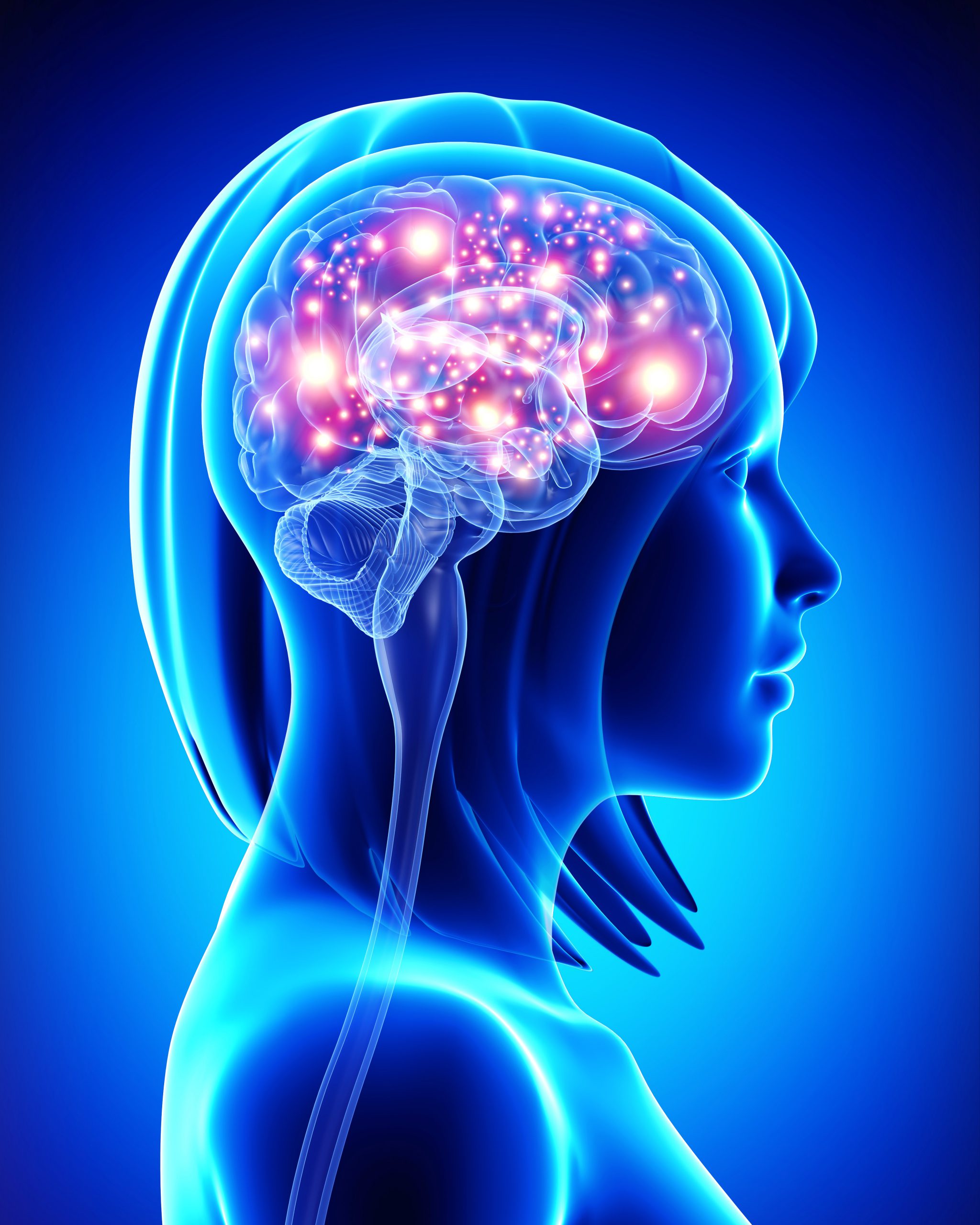Naperville Integrated Wellness
NAPERVILLE'S TOP RATED LOCAL® FUNCTIONAL MEDICINE FACILITY

Successful Weight Loss and Adequate Serotonin Levels
Serotonin, often referred to as the “feel-good” neurotransmitter, plays a significant role in regulating mood, appetite, and sleep. Serotonin and weight loss go hand-in-hand when speaking to the ability to lose weight. Low levels of serotonin are associated with mood disorders like depression and anxiety, as well as with increased appetite and carbohydrate cravings. When serotonin levels are low, people may be more prone to emotional eating and may find it difficult to stick to a healthy diet or maintain weight loss. Therefore, addressing serotonin imbalances through lifestyle changes, nutritional interventions, and sometimes medication can support weight loss efforts by helping to regulate appetite, improve mood, and reduce cravings, making it easier to adopt and sustain healthy habits. Learn more about serotonin and weight loss from our functional medicine doctors now.
How Does Serotonin Affect Your Appetite?
If you are struggling to lose weight, the real problem may be due to a lack of a particular chemical that is produced by the brain. This vital “weight-loss” chemical is called serotonin. In addition to lifting our mood and making us feel better, this brain chemical is a natural appetite suppressant. When your brain can make this chemical in sufficient amounts, it curbs craving, suppresses appetite and causes you to feel satisfied even if you stomach is not full. The bottom line is that if your brain is not making enough serotonin, your weight loss efforts will be a real struggle and you probably won’t reach your weight loss goals let alone maintain a lower weight.
Serotonin and Weight Loss
Low serotonin levels in the brain are thought to be a contributing factor in depression. Many people who are depressed look to food, often carbohydrates, to lift their mood. This is certainly not going to help with weight loss! Serotonin is a chemical called a neurotransmitter. This chemical is a way that nervous system cells communicate with each other. Sufficient production of serotonin contributes to feeling of happiness, satisfaction and optimism.
Where does serotonin come from?
Your brain makes serotonin from a protein (amino acid) called tryptophan. This may sound like a simple, but for many people struggling to lose weight this is not the case. First of all, the amino acid tryptophan is not generally found in large quantities in our diet (amino acids are the building blocks of proteins) and is in fact the most limited of all amino acids consumed by humans.
Tryptophan – The Breakdown
Tryptophan is an essential amino acid, meaning the body cannot produce it on its own and must obtain it from the diet. It serves as a precursor for the synthesis of serotonin, a neurotransmitter involved in mood regulation, sleep, and appetite control. Foods rich in tryptophan include turkey, chicken, fish, eggs, dairy products, nuts, seeds, tofu, and certain grains like oats. Consuming tryptophan-rich foods can potentially support serotonin production and contribute to overall well-being.
Rich sources of tryptophan:
- Mushrooms
- Chicken
- Dairy
- Turkey
- Lamb
- Nuts and seeds
- Beef
- Salmon
- Spinach
You may be looking at this list and believe that low serotonin can’t possibly be a problem for you because you eat plenty of these foods! The bad news is that a lot needs to happen after tryptophan enters your body and for it to be converted into serotonin and in sufficient quantities. The first hurdle tryptophan must overcome is to actually reach your brain.
Why You May Not Produce Enough Serotonin
Several factors can contribute to insufficient serotonin production, including dietary deficiencies in tryptophan, genetic variations affecting serotonin synthesis and function, chronic stress disrupting serotonin pathways, poor lifestyle habits such as inadequate sleep and excessive alcohol use, medical conditions like depression and irritable bowel syndrome, hormonal imbalances, and certain medications that impact serotonin levels. Addressing these factors through lifestyle modifications, dietary changes, stress management techniques, and medication when necessary can help support optimal serotonin production and promote overall well-being. Learn more about our key factors for not producing enough serotonin.
Competition To Get To The Brain
Once you eat a protein source containing tryptophan, it must find its way to the brain and cross a special barrier called the blood brain barrier. Tryptophan  cannot just enter the brain where is converted to serotonin, it is carried across this barrier by a transporter called a large neutral amino acid transporter (LNAA). Again, things are not as simple as they appear; the LNAA does not only transport tryptophan; it transports other amino acids and tryptophan must complete with these other amino acids for entry into the brain. So in the competition to get into the brain, tryptophan is usually at a disadvantage and outnumbered by other amino acids.
cannot just enter the brain where is converted to serotonin, it is carried across this barrier by a transporter called a large neutral amino acid transporter (LNAA). Again, things are not as simple as they appear; the LNAA does not only transport tryptophan; it transports other amino acids and tryptophan must complete with these other amino acids for entry into the brain. So in the competition to get into the brain, tryptophan is usually at a disadvantage and outnumbered by other amino acids.
Let’s Talk Carbohydrates: Serotonin and Weight Gain
Your blood sugar levels will affect how easily tryptophan is carried across the blood barrier and carbohydrates tip the odds in tryptophan’s favor but only up to a certain point. Eating carbohydrates helps get tryptophan into your brain and increase serotonin levels. This is one reason may people feel better (if only for a short while) after eating higher carbohydrate snacks. When you eat a higher carbohydrate meal, many of the amino acids that were competing with tryptophan at the blood brain barrier have removed from the bloodstream and used for other purposes. This reduces the competition for tryptophan and more can enter the brain and be converted into serotonin.
Low Serotonin and Weight Gain
However, many people who are trying to lose weight and suffer with low serotonin have a history of eating too many carbohydrates too often. This leads to problems with insulin control in the body (insulin helps get blood sugar into your cells) and contributes to poor serotonin regulation, transport and control. We begin to see serotonin dysregulation.
Serotonin-Production Nutrients
Once tryptophan makes it across the blood brain barrier, it still needs to be turned into serotonin. For this to occur, your brain needs sufficient levels of other nutrients like iron, B6, folic acid and magnesium. Many people are deficient in these vital nutrients and struggle to produce sufficient serotonin. It should also be noted that a large number of people will not be able to produce enough serotonin through diet alone and may require specialized amino acid supplementation under the supervision of a doctor trained in functional medicine. We have helped many patients achieve optimum serotonin levels without the use of medication.
Natural Serotonin Centers For Weight Loss
Successful weight loss will depend a great deal on the ability of serotonin to control food intake and curb cravings. Have you noticed that you crave more carbohydrates and sweets in the late afternoon or evening? This is a common carb-craving period of the day and is often associated with low serotonin levels. Those who struggle with carbohydrates and sugar often have a serotonin problem and are self-medicating (with carbohydrates) in an effort to raise serotonin levels. However, trying to increase serotonin this way will certainly not help your efforts to lose weight!
Schedule An Appointment for Serotonin and Weight Loss Today
Again, to achieve successful weight loss and keep the weight off, serotonin levels need to be adequate. As a functional medicine clinic, we offer weight loss programs that address the serotonin problem that so many people struggle with. We do this by evaluating your situation with bloodwork and functional testing that will assess your serotonin levels so that we can treat this if it is a contributing factor to your weight challenges.
For effective and sustainable weight loss, maintaining adequate serotonin levels is crucial. Our weight loss programs specifically target the serotonin imbalances that many individuals face. For more details about functional medicine, Dr. Sexton, Dr. Sharon Borkowski or our Naperville weight loss clinic, visit www.napervilleintegratedwellness.com. If you’re seeking a functional medicine doctor in Naperville, Chicago, Bolingbrook, Mokena, Downers Grove, Warrenville, Wheaton, St. Charles or surrounding areas, reach out to us today!
Empower yourself by conducting thorough research, staying informed, and being curious. When seeking information, always evaluate the credibility of its source. In the healthcare realm, misinformation, outdated data, profit-driven agendas, and bias are pervasive, even within seemingly trustworthy outlets.

